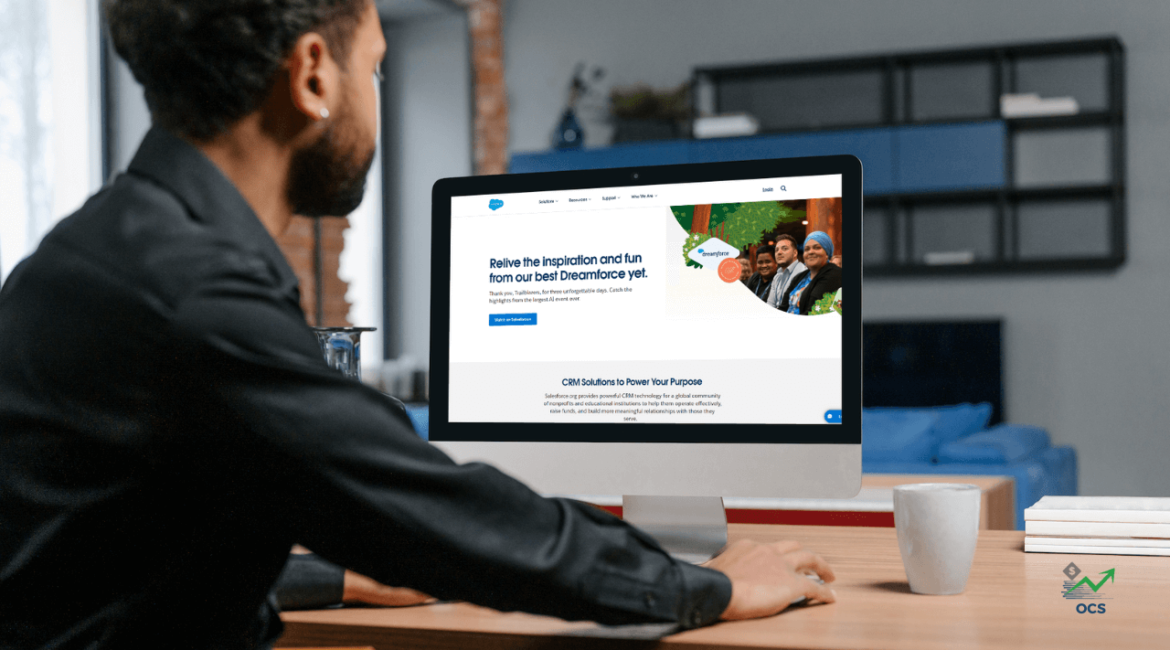Salesforce licenses play a vital role in accessing the powerful tools and resources of this market-leading CRM platform.
In today’s dynamic business landscape, operational effectiveness and resource optimization are crucial. When it comes to Salesforce, one of the areas where companies often face challenges is license management.
In this article, we will delve into strategies to avoid unnecessary purchases of Salesforce licenses while ensuring that your team has the appropriate access to drive business success.
We will explore:
- How to understand the different types of licenses available
- How to identify your organization’s specific needs
- Best practices for license management that can save precious time and resources.
Effective Salesforce license management not only helps prevent unwanted expenses but also allows businesses to make the most of the resources of this powerful platform.
Let’s dive deep into optimizing Salesforce licenses and ensure your company is equipped to tackle the challenges of the ever-evolving business world. Join us on this journey to optimize your Salesforce licenses and maximize your ROI.
Understanding Your Salesforce License Options
In the realm of Salesforce, understanding your license options is fundamental to making informed decisions for your organization.
Salesforce offers a diverse range of licenses tailored to meet various business needs. In this article, we’ll unravel the intricacies of Salesforce licenses, shedding light on the options available and their unique features.
- Salesforce Essentials: Designed for small businesses, Salesforce Essentials provides essential tools for sales and customer support. It’s a cost-effective solution that covers the basics of CRM functionality.
- Sales Cloud: This license is crafted for sales teams, offering a comprehensive set of tools to manage leads, opportunities, and customer relationships. Sales Cloud empowers organizations to streamline their sales processes and drive revenue growth.
- Service Cloud: Service Cloud is centered around customer support and service excellence. It equips businesses with tools for managing cases, automating service workflows, and delivering top-notch customer service.
- Marketing Cloud: For organizations focused on marketing and engagement, Marketing Cloud is the go-to choice. It provides a suite of marketing automation tools, email marketing capabilities, and analytics to boost customer engagement and campaign success.
- Commerce Cloud: Salesforce Commerce Cloud is designed for businesses engaged in e-commerce. It enables organizations to create personalized shopping experiences, manage product catalogs, and optimize online sales.
How to make the right choice when purchasing Salesforce licenses?
To make the right choice among these Salesforce license options, it’s crucial to identify your organization’s specific needs.
Consider factors such as the size of your business, your industry, and the functionalities required to support your operations.
Are you primarily a sales-driven organization, or does customer support play a pivotal role in your success? Do you need advanced marketing capabilities to fuel your growth?
By conducting a thorough needs assessment, you can pinpoint the Salesforce license that aligns perfectly with your goals and objectives.
In the upcoming sections, we will dive deeper into strategies for effective Salesforce license management and explore ways to optimize your chosen licenses, ensuring that your investment yields the best possible returns for your organization.
Identifying Your Organization’s Needs
Identifying your organization’s needs when it comes to Salesforce licenses is a critical step in optimizing your investment and ensuring that you have the right tools to meet your objectives.


Methods for Assessing Your Specific Needs
Assess Your Team: Begin by understanding the composition of your team. Identify who will be using Salesforce and their roles. Sales representatives, customer support agents, marketing teams, and administrators may all require different levels of access and functionality within the platform.
Define Objectives: Clearly outline your organization’s goals and objectives when implementing Salesforce. Are you looking to increase sales, improve customer service, enhance marketing campaigns, or streamline operations? Each goal may necessitate different licenses and features.
User Roles: Categorize users into roles based on their responsibilities. For instance, sales representatives may need Sales Cloud licenses, while customer support agents may require Service Cloud licenses. Tailor licenses to match the specific needs of each role.
Access Levels: Determine the required access levels for each user. Some users may only need read-only access to certain data, while others may require full editing capabilities. This will influence the type of license needed.
Scaling Projections: Consider your organization’s growth projections. Are you planning to expand your team in the near future? Ensure your license choices can accommodate future additions without unnecessary costs.
Integration Requirements: If your organization relies on other software or tools, assess the integration capabilities of Salesforce. Some licenses come with more robust integration options, which can be crucial for streamlining processes.
Budget Constraints: Take your budget into account. Salesforce licenses vary in cost, and it’s essential to strike a balance between functionality and affordability. Opt for licenses that align with your financial resources.
By conducting a comprehensive needs assessment, you can tailor your Salesforce license selection to match your organization’s unique requirements.
In the next section, we will explore best practices for license management, ensuring that your licenses are effectively utilized and maintained to maximize their value.
Best Practices for License Management
Effective license management within Salesforce is essential to ensure that your investment is both cost-efficient and maximally productive.
Best practices and strategies for optimizing the use of Salesforce licenses
Regular License Audits: Conduct regular audits of your Salesforce licenses. Review who is using them, their access levels, and their actual usage. Identify dormant or underutilized licenses that can be reallocated.
Rightsizing Licenses: Continuously assess whether your users have the right type of licenses. Users may change roles or responsibilities over time, and their license needs may evolve accordingly. Ensure that each user has the appropriate level of access and functionality.
User Training: Invest in training for your Salesforce users. Well-trained users are more likely to utilize the platform effectively, reducing the need for additional licenses or support.
Automation and Customization: Leverage automation and customization features within Salesforce to enhance productivity. This can help you do more with fewer licenses by streamlining processes and workflows.
Utilize Consulting Services: Consider utilizing consulting services, such as those offered by OCS (Org Cost Savings), to assess your Salesforce setup. Our experts can identify areas where licenses may be underutilized or where process improvements can lead to license reductions.
Scale Gradually: If your organization is growing, scale your Salesforce usage gradually. Purchase licenses as you need them, rather than in bulk. This approach can prevent over-purchasing and helps align costs with growth.
Stay Informed: Keep up-to-date with Salesforce updates and licensing changes. Salesforce regularly introduces new features and licensing options that could impact your strategy.
Retire Unused Features: Disable or retire unused Salesforce features. Unneeded features can contribute to complexity and confusion, potentially leading to additional license purchases.
Document and Communicate: Maintain clear documentation of your Salesforce setup, license assignments, and user access levels. Regularly communicate with your Salesforce users to understand their evolving needs.
By implementing these best practices, you can make the most of your existing Salesforce licenses, avoid unnecessary expenditures, and ensure that your organization operates efficiently within the platform.
Final considerations

In conclusion, Salesforce is undeniably a game-changer for businesses, including B2B companies, offering a multitude of benefits and truly limitless potential. However, to ensure you get the maximum return on your investment and avoid unnecessary license expenses, it is crucial to adopt effective license management practices.
Here at OCS (Org Cost Savings), we are committed to helping your company successfully navigate the complexities of Salesforce license management. Our expert consultants can assess your current setup, identify areas for improvement, and ensure you have the correct number and type of licenses to meet your specific needs.
So why face the challenges alone when you can rely on our expertise? Together, we can overcome obstacles and leverage the advantages of Salesforce, propelling your company to new heights in the digital age.
Don’t put off optimizing what you can start today. Connect with us at OCS and embark on your journey toward a more efficient and cost-effective Salesforce. We are ready to assist you.






